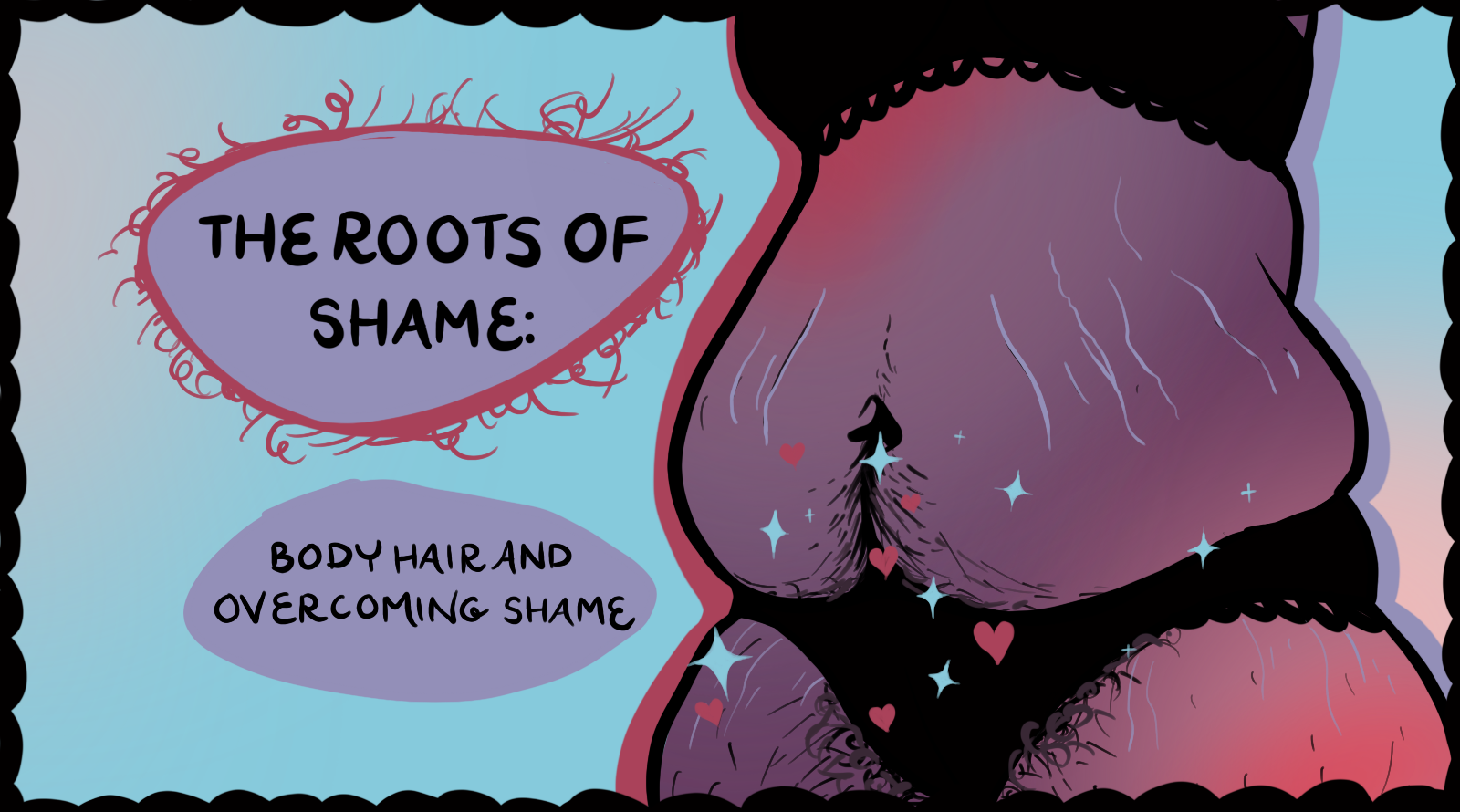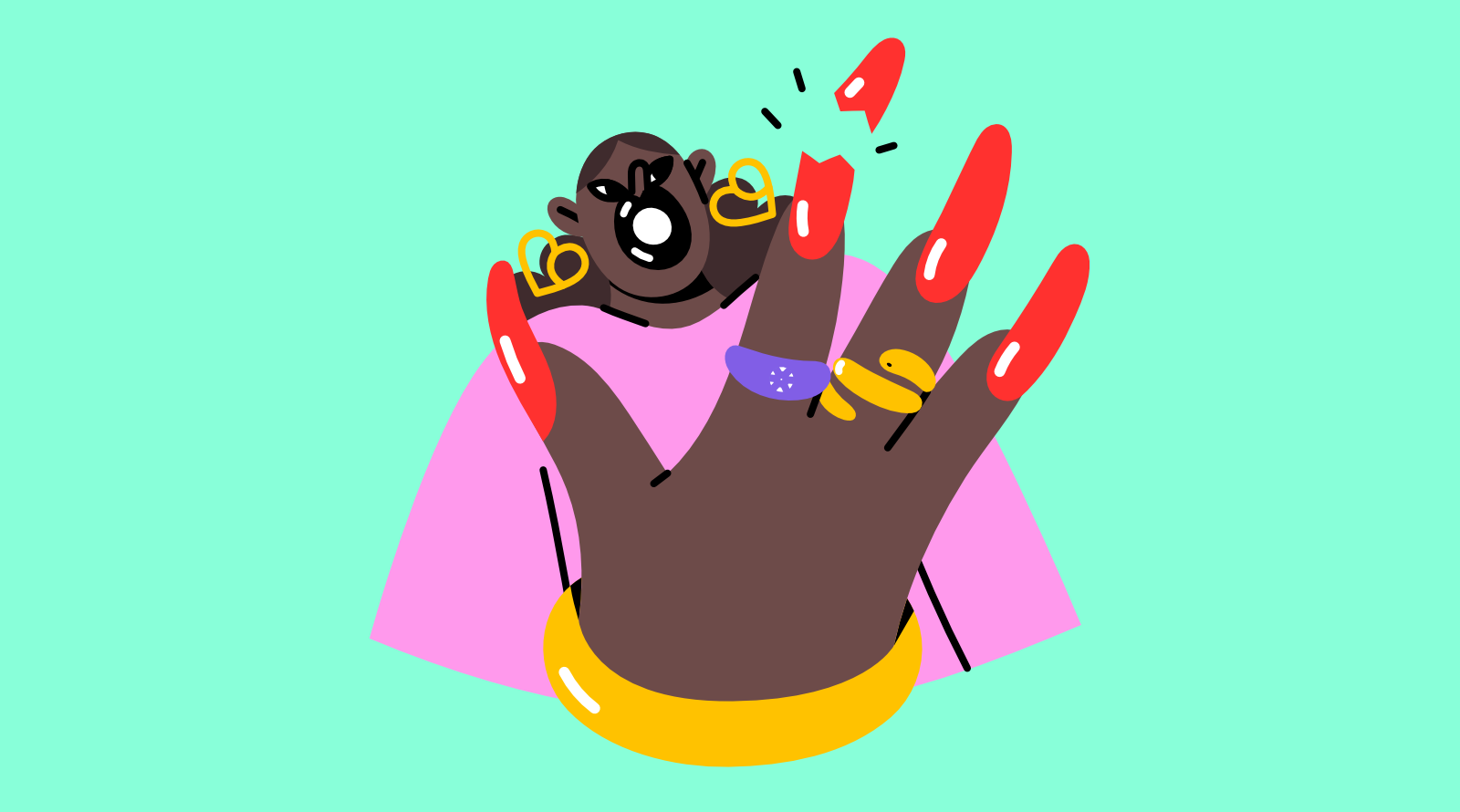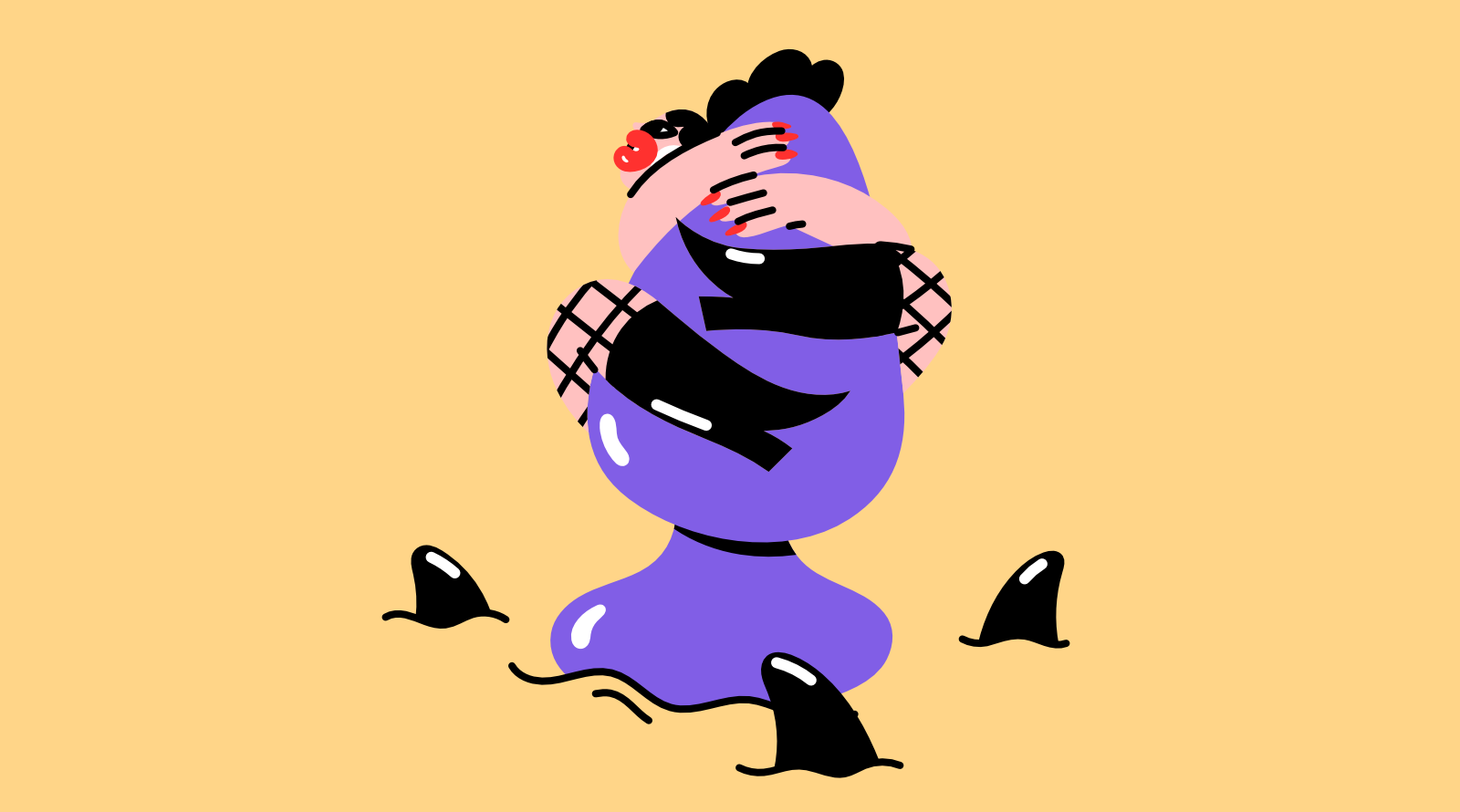The earliest memory I have regarding body hair is from middle school, which was sometime during 2008, when I and my peers had first started to notice hair on our legs in the locker rooms. I distinctly remember feeling jealous of someone because they “didn’t need to shave” on account of their blonde hair matching their skin tone, unlike me who’s dark hair was painfully obvious compared to my pale skin. I hadn’t even gone through puberty and I was already comparing my body to others. I didn’t even know why but at the time I didn’t even question it; it was simply another “con” of being a girl. I had learned this from my family who considered the removal of body hair to be a part of a “woman’s daily routine”, but how did this ridiculous expectation come about? Has it always been this way? Of course not, and the reasons why are classic examples of how Eurocentric beauty standards serve to reinforce patriarchal capitalism.
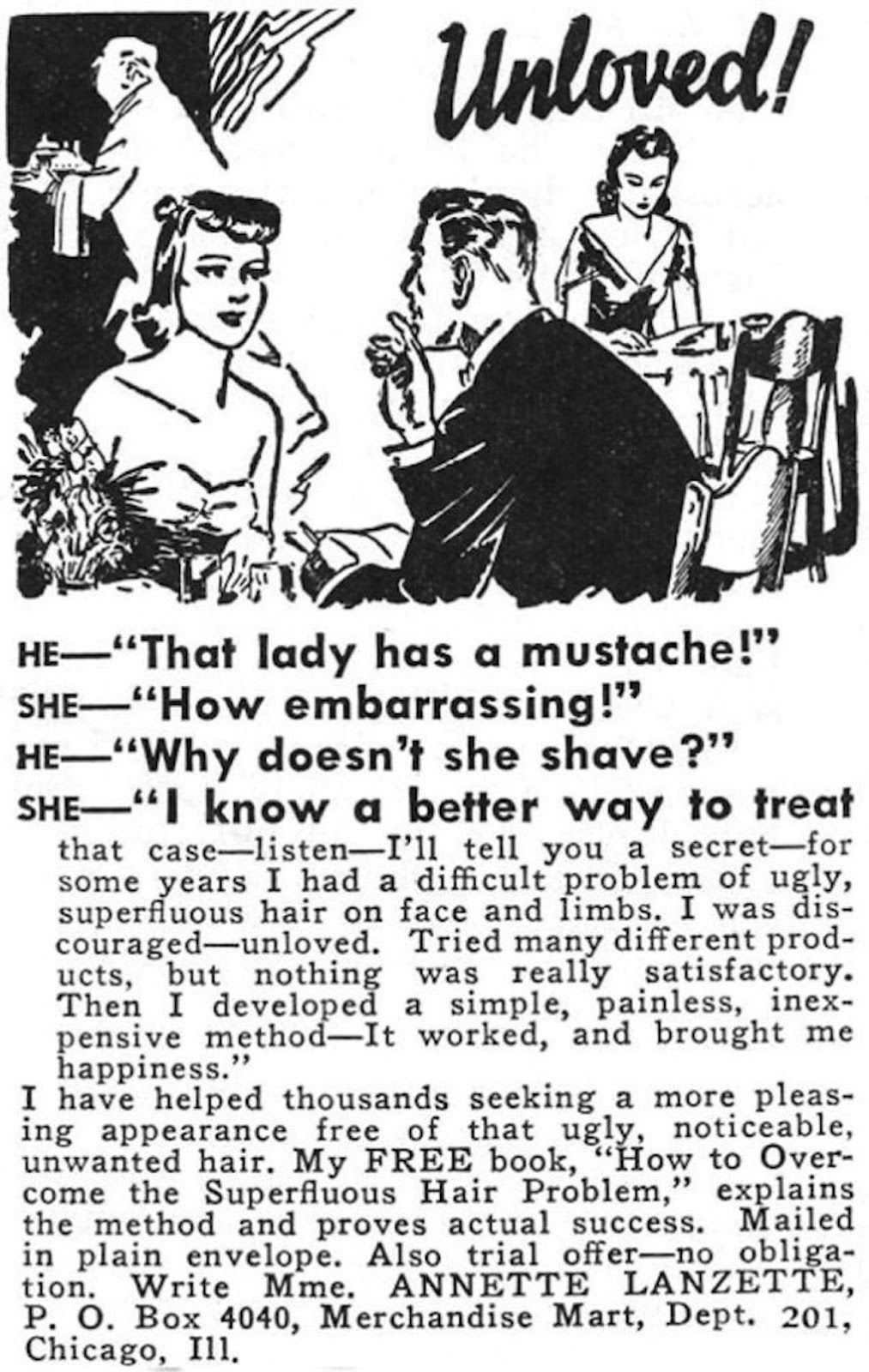
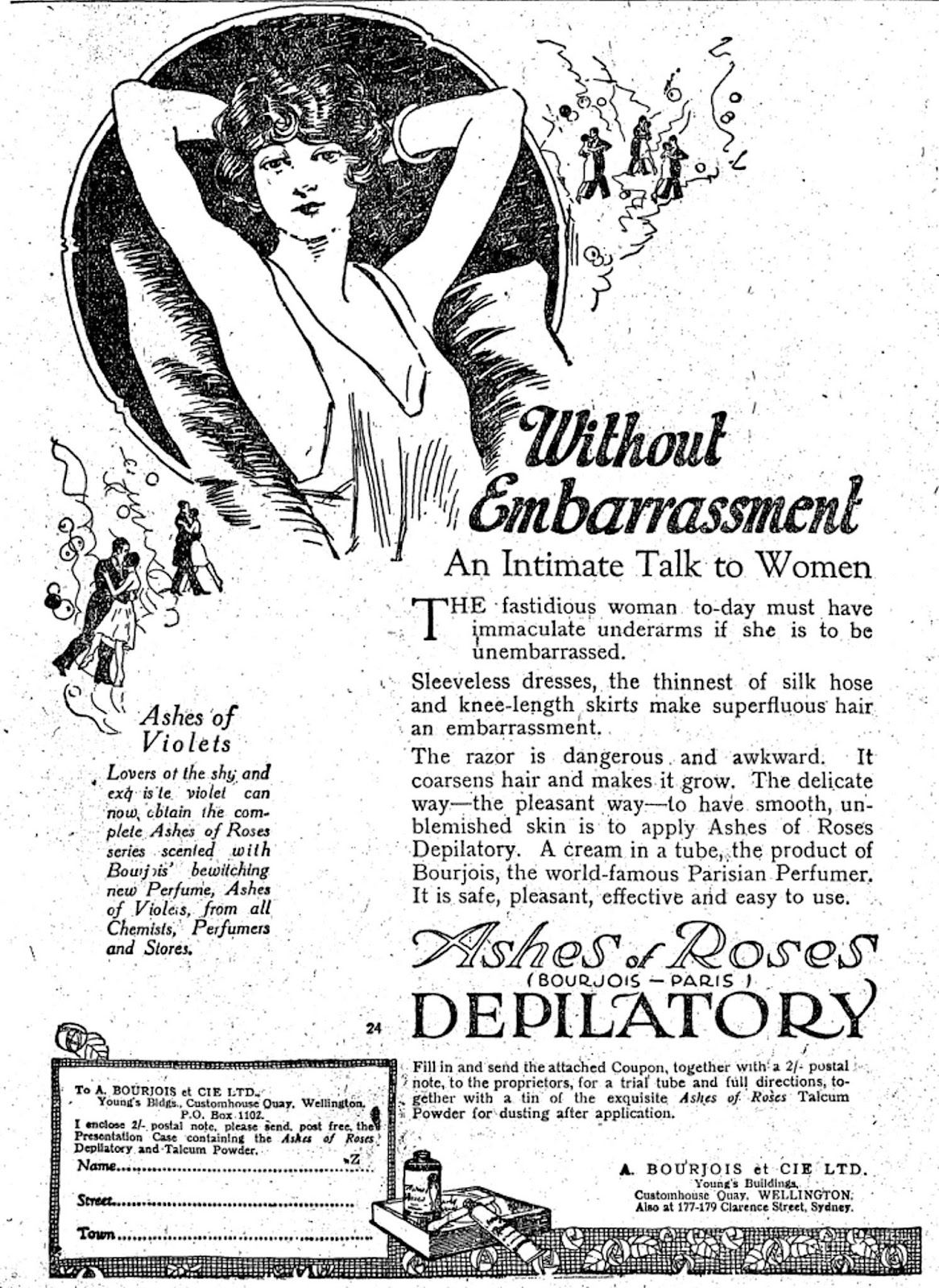
For most of fashion history, “women’s” clothes didn’t show enough skin for our body hair to be widely scrutinized.
However, when clothes slowly began to show more skin in the early 1900’s, the patriarchy sought out a way to shame women and femmes and profit at the same time. Yes- you read that correctly. The generational shame around women and femmes with body hair in the United States stems primarily from some guy who wanted to sell more razors. One of the most influential companies peddling this stigma was Gillette- who made their first “women’s” razor in 1915. Shame became a primary method advertisers used to influence women and femmes into purchasing their products. Since women, particularly middle class white women, were expected to be symbols of their husbands’ success, it’s no surprise that magazines and corporations were often left to define standards of beauty. From razors for “scaredy cats” to hair removal creams full of harsh chemicals, advertisements for hair removal products successfully convinced an entire generation of women and femmes that their natural body hair was not only unhygienic but unattractive, “superfluous”, “unsightly” and something to be ashamed of (Komar, 2016).
As much as I’d like to let you believe that these harmful Eurocentric standards of beauty are a recent development- you might not quite understand the gravity of the root of the problem. Even in ancient Egypt, Rome, and Greece- women and femmes were pushed to remove their body hair. While each region had their own methods and varieties of body hair removal, they were all influenced by the same notion that body hair on women and femmes was “uncivilized”. Whereas men who removed their body hair were considered “dandies” as if caring about your appearance was not only feminine- but an embarrassing trait to have as a man. Since as far back as 3100 BC, in Ancient Egypt, men have been defining what femininity is and fueling their narratives with racism, misogyny, and misinformation when their reasoning is questioned (Moss, 2014). This constant delusion, unknowingly or not, has led body hair to be falsely gendered as male and a lack of body hair as female.
I officially stopped shaving in August 2020 mainly because I hated what my vulva and surrounding skin looked and felt like with constant ingrown hairs, irritation, and scarring. Along with that decision I figured I’d just grow out all of my body hair to not only give my skin a break, but also to see how I felt about it. I had realized I’d never actually seen my body hair before and was curious to know what my now adult body actually looked like, since all I’d ever known was what I was told it should look like- hairless like a child.
As it grew in I began to notice hateful comments on my posts that featured my body hair. I decided to challenge these comments to understand why they responded the way they did and, unsurprisingly, all of them claimed it wasn’t “natural” for women or femmes to be hairy; however they never provided any reasoning behind this other than the same incorrect notion that it’s somehow unhygienic. Some people even commented demanding I shave it off accompanied by an image of, yes- you guessed it, a pink razor. The more of these comically illogical comments I got, the more convinced I became. Not only are their comments the result of centuries of racist and misogynistic brainwashing, but the constant demand for women and femmes to shave in order to be considered attractive is a blatant attempt at enforcing White Christian purity culture in which virginity and youth are our greatest assets.


All grown adults, no matter their gender, have body hair in various amounts and locations depending on their ethic background.
What an individual decides to do with their body hair: to shave it, trim it, or to leave it be, is completely up to them. However, when someone requires or demands another to shave? That’s a fetishization of pubescent hairless bodies and a refusal to accept women and femmes as anything other than objects of the male gaze. You might think this is an extreme conclusion, but the most common reason that’s spewed for being expected to shave is because it’s not “natural” to be hairy. However, the only bodies that are “naturally” hairless are those who have yet to grow it to begin with. Body hair is a sign of maturity and nothing scares a misogynist more than a femme who they cannot manipulate. So of course they will claim it’s unnatural or unclean- they will say anything to shame you into adhering to their patriarchal views. People, but particularly men, haven't been able to accept that our bodies, just like their bodies, have and have always had varying degrees of body hair for centuries.
Contrary to what misogynists want you to believe, letting your body hair grow out has many advantages to your everyday life. Our body hair regulates our body temperature, protects our skin from chafing, and acts as a barrier to bacteria. Shaving, on the other hand, not only removes this barrier, but also leaves you more vulnerable to infections caused by micro-cuts. Happier skin isn’t the only benefit of letting your body hair grow freely though as our body hair also assists in finding us potential partners and even improves our sex lives by releasing more pheromones! Removing our body hair limits this benefit which in turn results in more unsatisfactory sexual encounters not to mention less pleasure during play as each pubic hair follicle holds nerve endings that can add desirable sensations when they are rubbed up against even slightly (Ashe, 2018).
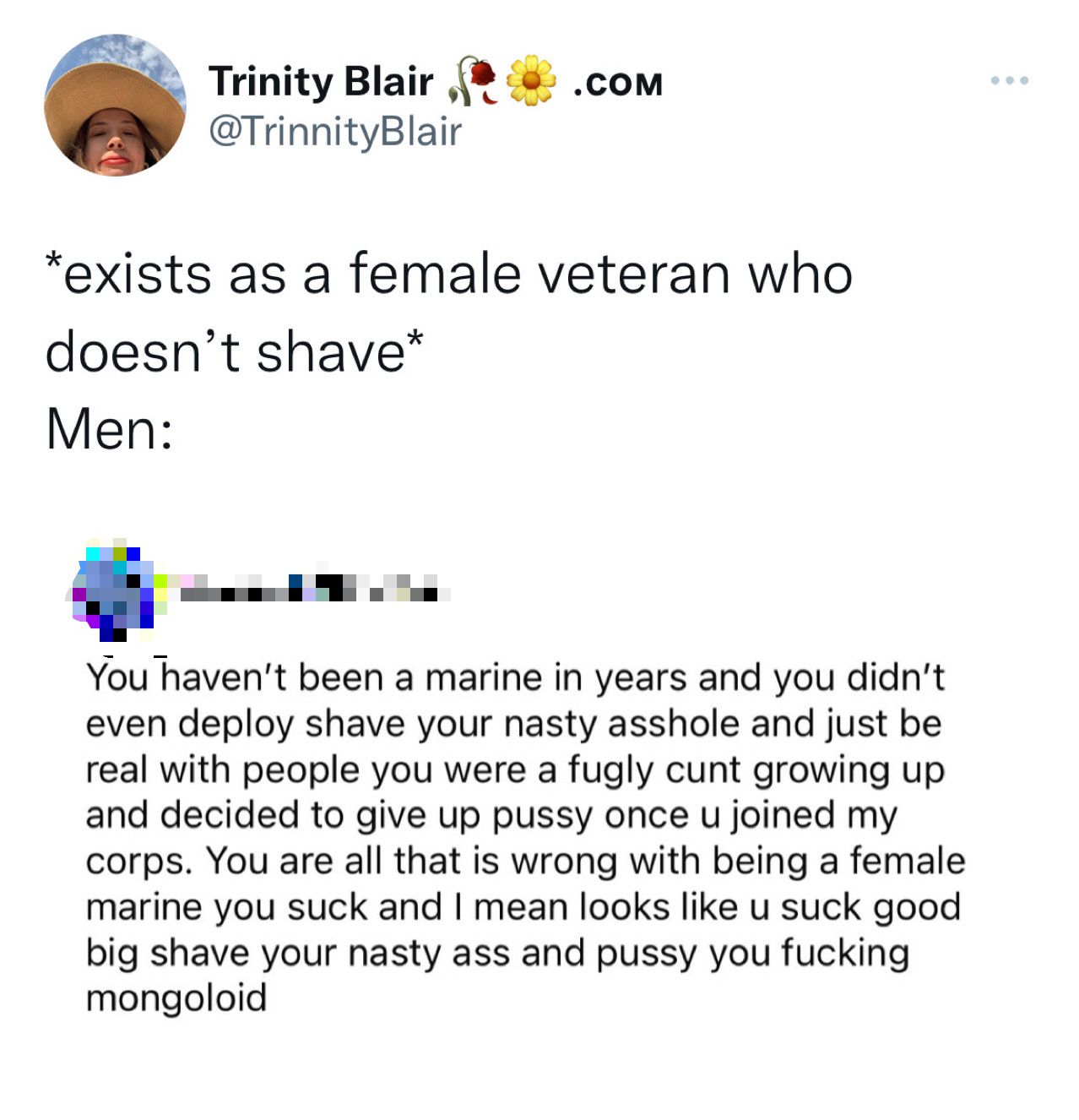
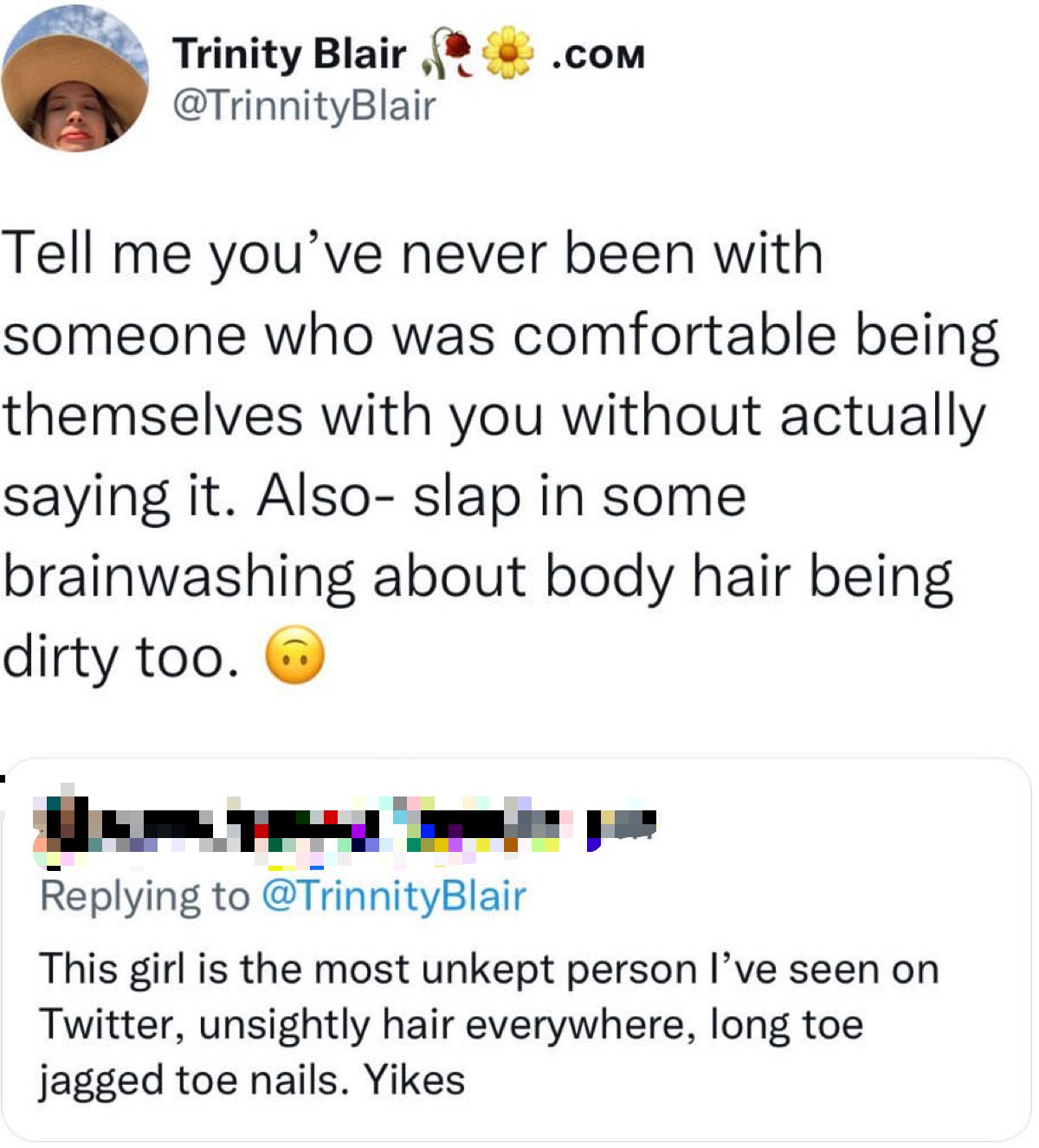
Once you understand that the shame and misinformation that you’ve learned is nothing more than the patriarchy's attempt to limit our autonomy, our sexual liberation and pleasure, you’ve already started to uncross the wires in your brain. If you started to shave the moment your body hair grew in, like myself, your body hair isn’t “normal” to you. You’ve trained your brain to perceive your hairless body as “normal” by shaving it constantly, never allowing yourself to recognize your body hair as part of yourself but instead as something to remove. However, seeing body hair on femme bodies represented more in media and in your daily life by growing out your own will help retrain your brain to no longer perceive body hair as an eye sore but something to expect- something that is normal. When you grow out your body hair for the first time, you’ll experience how it changes and increases your sensations, which might be odd at first, like how you’ll be able to feel the wind blow through your leg hair and discomfort when its pressed flat under tight clothing for long periods, but these are not necessarily bad sensations- simply new ones you’ve never felt before. Slowly but surely you’ll learn more about your body hair and maybe even start to love it. You might even make the connection that the liberating feeling you’ll experience is exactly why misogynists shame us into shaving.
Patriarchal capitalism doesn’t want you to love your body hair because it gives you more control.
Your pheromones help repel those you want to avoid, and attract those you want to connect with. The nerve endings in each hair follicle increases your sexual satisfaction, and the confidence you gain from celebrating your body hair daily will challenge those who are still riddled with shame. Overcoming shame starts with acknowledging why we are taught it to begin with. When we understand the roots of shame, suddenly misinformation and insults no longer stick as they once did. Instead we start to find them humorous or bizarre because you know they are nothing more than a learned reaction and an attempt to confine you to the male gaze and Western beauty standards. Take back the power the patriarchy constantly tries to shame us into rejecting by growing out your body hair, experimenting with it, learning about it, and accepting it as part of you- your body hair is yours and yours alone and centuries of shame should have no part in your decision on how you maintain it or feel about it.

